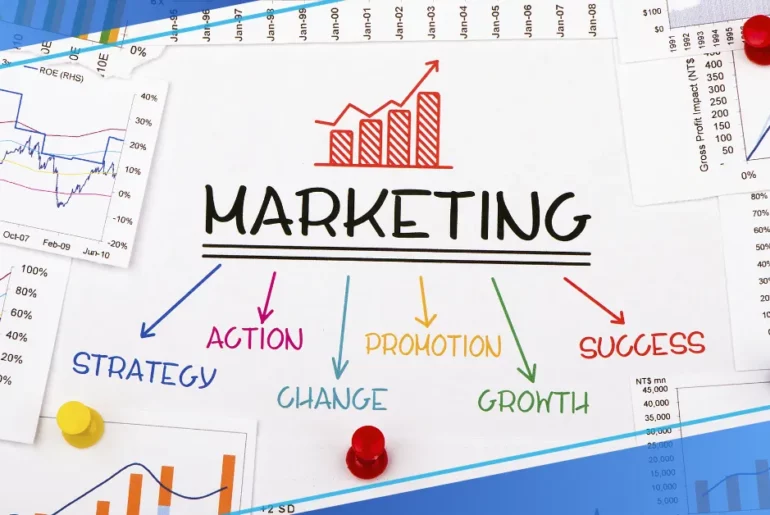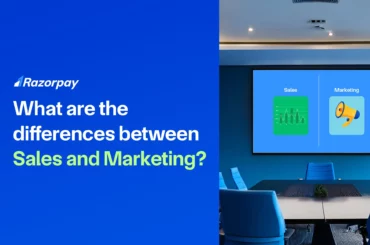According to a recent study, there will be a massive shift towards online marketing as over 50% of marketers are expected to devote more resources to online mediums.
A B2C business directly sells its products or services to consumers. In contrast, a B2B business caters to the requirements of other businesses. Therefore, marketing strategies for B2B businesses are different from the marketing strategies for B2C businesses.
In this article, we will look at the most effective marketing strategies for B2B businesses and B2C businesses.
Most effective marketing strategies for B2B businesses:
1. Lead generation
B2B businesses do not have direct contact with normal consumers. They sell their products or services to other businesses. B2B businesses thrive on leads. So, lead generation is one of the most important marketing strategies for a B2B business.
The number of leads required for consistent growth depends on the niche, industry, and price point.
Businesses need to do market analyses and have knowledge about industry trends. Solution-oriented content can act as a strong lead generator.
Most SaaS and service-based companies rely on lead generation for revenue and sales.
Key takeaway: Consistent lead generation can ensure consistent business growth and significantly increase profitability
2. Industry events
Showing up at trade events is one of the best marketing strategies for B2B brands.
These events attract many companies. So, attending these events can help a business owner build connections with potential customers and stay updated about industry trends and competitions.
There has been a significant rise in the number of webinars, workshops, and virtual conferences during the past two years due to the pandemic.
Key takeaway: Irrespective of the size of a business, industry events prove to be an excellent tool for marketing and networking. So, B2B business owners must attend these conferences to find potential customers and build connections.
3. Search Engine Optimisation (SEO)
SEO is the process of improving a business website to increase its visibility when people search for services related to that business on different search engines.
Billions of searches are being made on different search engines every day. Businesses have recognized the importance of appearing as the top results to generate traffic and sales. That is why they are giving more priority to Search Engine Optimisation.
Key takeaway: SEO has the power to generate enormous traffic and higher ROI in the long run.
4. Email Marketing
Any B2B business needs to stay in touch with existing and prospective consumers. Email marketing helps in informing customers about the latest offers, important announcements, and industry-related news that may be beneficial for the target audience.
To stay in touch with your consumers, you can start sending newsletters to them via emails.
Email marketing is a low-cost marketing strategy that works well for service and technology-based companies.
Key takeaway: Email marketing has the potential to emerge as one of the best marketing strategies because of its efficiency and low-cost nature.
5. Search Engine Marketing
Search Engine Marketing (SEM) or Pay-Per-Click (PPC) campaigns are excellent marketing techniques. It involves running paid advertisements on leading search engines like Google with appropriate keywords to direct people to the business website. The visitors can turn out to be potential customers.
PPC campaigns are used by a large number of medium and large businesses across the globe.
Key takeaway: SEM strategy can increase the number of visitors to your website.
Most effective marketing strategies for B2C brands:
1. Social media marketing
B2C brands thrive on wider reach and touching base with as many prospective consumers as possible. One of the marketing strategies that help in achieving this is social media marketing.
B2C brands can build a strong audience base on major social media platforms and drive engagement by posting shareable content.
B2C brands should aim to create new trends on social media platforms and create content that has the potential to go viral.
Key takeaway: Social media platforms have become an integral part of the life of commoners. Therefore, B2C businesses need to establish themselves on these platforms.
2. Point-of-Purchase (POP) marketing
POP marketing involves trying to sell to an audience who are looking for suitable products on the site.
For instance, mediums like coupons, cashback, discounts, or package deals are used to attract customers when they are about to finalize a purchase.
POP marketing has emerged as a successful tool, especially for retail and e-commerce businesses.
Key takeaway: Point-of-Purchase marketing works well for both offline and online stores. It can influence the customers while making purchasing decisions.
3. Internet marketing
Internet marketing is a technique that uses all web-based channels for s[reading messages about a company’s products and services. For a B2C business, an internet marketing strategy has to work in collaboration with a traditional marketing strategy.
Many customers have shifted towards online shopping, and it is essential to tap into this user base to drive business growth.
Key takeaway: Internet marketing should be used in conjunction with traditional techniques like advertising on TV channels and radio.
4. Conversational Marketing
As a business owner, you must ensure that your customers can communicate and share their grievances with your team. Conversational marketing involves real-time interaction with the brand through a chatbot or a customer service executive.
Conversational marketing is important for B2C brands as it gives the customers a sense of security.
Conversational marketing is an excellent marketing technique for tech-based and e-commerce companies.
Key takeaway: When customers feel secure about using your products, it will automatically increase your sales and accelerate your business’s growth. So, allow them to share their grievances.
5. Storytelling
B2C brand building is based on the ability to touch base with a large number of consumers. You can create engaging content and blogs that inform customers about the history and achievements of your business.
The blogs can be about the growth of the business, customer testimonials, community impact, or your thoughts on industry trends.
Key takeaway: Telling stories to potential customers can increase engagement and build trust. However, for effectively executing this process, the script must be impactful, and the content should not be monotonous.
Wrapping up
Carefully go through all the strategies mentioned in this article and implement the strategies that will fulfill your requirements.
Marketing is an essential process for building a business. You need to inform customers about your products and services. Sometimes, it can be hard for beginners. But, by implementing the right marketing strategies, business owners can take their business to the next level.



